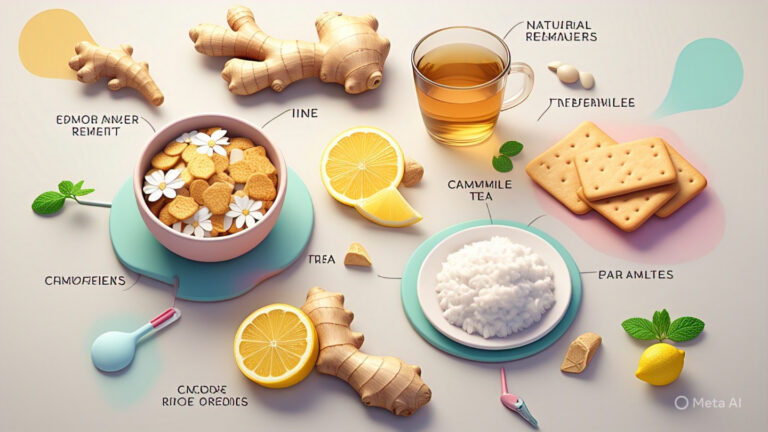Home Remedies for Periodontitis: Soothe Gums Naturally with Easy Tips
Estimated reading time: 8 minutes
Key Takeaways
- Natural support: Home remedies like saltwater rinses and aloe vera can help soothe gum discomfort caused by periodontitis.
- Not a cure: These remedies manage symptoms but cannot replace professional dental care for advanced gum disease.
- Safety first: Proper use and moderation prevent irritation or adverse effects from natural solutions.
- Prevention matters: Daily hygiene, diet, and lifestyle changes can lower the risk of gum issues long-term.
- Seek help: Persistent or worsening symptoms require a dentist’s intervention to avoid severe complications.
Table of Contents
- 1. Introduction to Periodontitis and Natural Solutions
- 2. Understanding Periodontitis: What You Need to Know
- 3. Science-Backed Home Remedies for Periodontitis
- 4. How to Use Home Remedies Safely
- 5. When to Seek Professional Dental Help
- 6. Preventive Tips for Long-Term Gum Health
- 7. Expert Insights and Credibility on Natural Gum Care
- 8. Frequently Asked Questions (FAQs)
1. Introduction to Periodontitis and Natural Solutions
Dealing with gum issues can be a real challenge, and periodontitis—a serious condition affecting the gums and structures around your teeth—often feels overwhelming. If you’re seeking ways to ease discomfort at home, you’re not alone. Many turn to natural remedies for accessible support, and at WikiHomeRemedies, we’re here to guide you with solutions grounded in science.
Periodontitis impacts nearly half of adults over 30 worldwide, according to data from the National Institutes of Health (NIH). It’s a condition that demands attention, but home remedies can play a supportive role alongside professional care. Our mission is to help you navigate these options with clear, trustworthy advice, drawing from reputable sources like the World Health Organization (WHO) and real-life experiences. Let’s explore how nature’s solutions can soothe your gums while understanding the importance of a comprehensive approach.
2. Understanding Periodontitis: What You Need to Know
Periodontitis is more than just a minor gum irritation—it’s an advanced stage of gum disease that goes beyond gingivitis. When plaque builds up and hardens, it can inflame gums, damage bone, and even lead to tooth loss. What’s more concerning is its link to broader health issues, such as heart disease, as noted by the Centers for Disease Control and Prevention (CDC).
This condition affects millions, and recognizing its signs early can make a significant difference. Beyond oral health, untreated periodontitis might contribute to systemic inflammation. Let’s dive into what causes it, how to spot the symptoms, and why taking action matters.
2.1 Causes of Periodontitis
Several factors can pave the way for periodontitis, but many are within your control. Here’s a quick look at the main culprits:
- Plaque buildup: When bacteria accumulate on teeth, it forms a sticky film that irritates gums.
- Poor oral hygiene: Skipping brushing or flossing allows plaque to harden into tartar.
- Smoking: Tobacco use weakens gum tissue, increasing disease risk, as per WebMD findings.
- Diabetes: Uncontrolled blood sugar can worsen gum inflammation, according to NIH research.
- Genetics: Family history might predispose some to gum issues, though lifestyle still plays a role.
Focusing on hygiene and habits can reduce these risks significantly.
2.2 Common Symptoms to Watch For
Noticing changes in your gums early can help you act fast. Keep an eye out for these telltale signs of periodontitis:
- Swollen gums: Gums may appear red or puffy, often feeling tender.
- Bleeding gums: Brushing or flossing might cause bleeding, even with gentle pressure.
- Bad breath: Persistent odor can signal bacterial overgrowth.
- Receding gums: Gums pulling away from teeth expose roots over time.
- Loose teeth: Advanced stages may weaken tooth support, causing mobility.
If these sound familiar, it’s time to assess your gum health and consider supportive steps.
2.3 Risks of Untreated Periodontitis
Ignoring periodontitis can lead to more than just a sore mouth. Over time, it may cause permanent tooth loss or bone damage in the jaw, making chewing and speaking difficult. Research from the Mayo Clinic also points to potential links with cardiovascular problems due to chronic inflammation.
Acting sooner rather than later prevents these complications. While natural solutions can help manage discomfort, understanding the seriousness of this condition underscores the need for a balanced approach.
3. Science-Backed Home Remedies for Periodontitis
If you’re looking to soothe your gums naturally, several home remedies offer relief for mild to moderate symptoms. These options, supported by research from credible sources like NIH and WebMD, work best as part of a broader care routine. Let’s walk through each one, explaining how they help and how to apply them safely.
3.1 Saltwater Rinse
A simple saltwater rinse can work wonders for inflamed gums. Its natural ability to reduce bacteria and calm swelling makes it a go-to option, as noted by Healthline. It’s easy to prepare and use at home.
- Mix 1 teaspoon of salt in a glass of warm water.
- Swish the solution in your mouth for about 30 seconds.
- Spit it out and repeat 2–3 times daily for best results.
This gentle rinse can lessen irritation without harsh chemicals.
3.2 Tea Tree Oil
Tea tree oil stands out for its antimicrobial power, helping to combat harmful bacteria in the mouth. Studies highlighted by Verywell Health show its potential to support gum health when used correctly. Caution is key since it’s potent.
- Dilute a few drops with a carrier oil like coconut oil.
- Apply sparingly to gums using a clean finger or cotton swab.
- Rinse your mouth after 5 minutes to avoid irritation.
A little goes a long way with this natural extract.
3.3 Aloe Vera Gel
Aloe vera is a trusted ally for soothing gum discomfort. Its cooling effect eases inflammation, and Medical News Today points to its healing benefits for oral tissues. Using pure gel ensures the best outcome.
- Scoop out fresh aloe vera gel or use a store-bought pure version.
- Gently massage a small amount onto affected gums.
- Rinse after 10 minutes to remove residue.
This plant-based remedy offers a calming touch for sore gums.
3.4 Turmeric Paste
Turmeric, with its active compound curcumin, brings strong anti-inflammatory benefits to the table. Research from NIH suggests it can help reduce gum swelling when applied topically. Making a paste is straightforward.
- Mix 1 teaspoon of turmeric powder with a bit of water.
- Form a thick paste and apply it to your gums.
- Leave it on for 5 minutes, then rinse thoroughly.
This golden spice can be a powerful addition to your gum care.
3.5 Oil Pulling with Coconut Oil
Oil pulling, a traditional practice, involves swishing oil to reduce oral bacteria. Coconut oil is a popular choice due to its mild antimicrobial properties, as supported by insights from Dr. Axe. It’s simple to try.
- Take 1 tablespoon of coconut oil and swish it in your mouth.
- Continue for 10–15 minutes, then spit it out.
- Rinse with water and brush as usual.
This method can complement your daily hygiene routine.
3.6 Green Tea Rinse
Green tea isn’t just a comforting drink—it’s packed with antioxidants that benefit gum tissue. Colgate references its potential to reduce inflammation when used as a rinse. Preparing it is effortless.
- Brew a cup of green tea and let it cool to lukewarm.
- Swish the tea in your mouth for 30 seconds.
- Repeat twice daily for a gentle boost.
This easy rinse harnesses nature’s goodness for your gums.
3.7 Cranberry Juice (Unsweetened)
Cranberry juice, when unsweetened, may prevent bacteria from sticking to gums and teeth. Everyday Health highlights its role in oral care, though moderation is important due to its acidity. Choose wisely.
- Opt for 100% unsweetened cranberry juice, not sweetened blends.
- Drink a small glass or swish briefly, then rinse with water.
- Limit to once daily to protect enamel.
This tart juice can support your efforts against gum issues.
3.8 Hydrogen Peroxide Rinse
A diluted hydrogen peroxide rinse offers mild antibacterial effects for gum health. WebMD notes its usefulness in reducing plaque, but strict dilution prevents irritation. Safety comes first with this remedy.
- Mix equal parts of 3% hydrogen peroxide and water.
- Swish for 30 seconds, then spit without swallowing.
- Rinse with plain water to clear any residue.
Use this sparingly to avoid overexposure to your gums.
4. How to Use Home Remedies Safely
Exploring natural remedies for periodontitis is a practical step, but safety ensures they help rather than harm. Overdoing it or ignoring guidelines can lead to irritation or allergic reactions. Let’s go over key precautions to keep your experience positive, drawing from warnings on platforms like Healthline.
Each remedy has its own limits, whether it’s the frequency of a rinse or the dilution of an oil. Testing for sensitivities, especially with essential oils, can save you discomfort. Consulting a healthcare provider if you’re unsure is always a wise move.
4.1 General Precautions
Safety starts with mindfulness when using natural solutions. Here are essential tips to follow:
- Avoid overusing any remedy to prevent gum or enamel damage.
- Test essential oils on a small skin area first for allergic reactions.
- Stop immediately if you notice burning, redness, or discomfort.
- Keep remedies away from children to avoid accidental ingestion.
These steps help protect your health while seeking relief.
4.2 Dosage and Frequency Guidelines
Sticking to recommended amounts keeps remedies effective and safe. Consider these limits:
- Saltwater rinse: 2–3 times daily, not more.
- Tea tree oil: Once daily, always diluted.
- Oil pulling: Once per day for 10–15 minutes.
- Hydrogen peroxide rinse: Once daily, properly diluted.
Following these ensures you’re not stressing your gums.
4.3 Who Should Avoid Certain Remedies?
Not every remedy suits everyone. Pay attention if you’re in these groups:
- Pregnant or nursing individuals should consult a doctor first.
- Those with known allergies to herbs or oils must be cautious.
- People with sensitive enamel should limit acidic options like cranberry juice.
When in doubt, professional advice offers clarity.
5. When to Seek Professional Dental Help
Home remedies can ease gum discomfort, but they aren’t a full fix for periodontitis, especially in severe cases. Knowing when to see a dentist prevents worsening conditions like deep infections or bone loss. The Mayo Clinic emphasizes that professional care is vital when natural approaches fall short.
Dentists can address underlying issues that rinses or pastes can’t touch. If symptoms persist or intensify, don’t delay reaching out. Let’s explore the signs that signal it’s time for expert intervention.
5.1 Red Flags for Immediate Care
Some symptoms mean you should seek help without waiting. Watch for these serious indicators:
- Persistent pain that doesn’t ease with remedies or over-the-counter options.
- Pus or unusual discharge around gums, suggesting infection.
- Significant tooth movement or loosening, indicating bone damage.
These call for a dentist’s expertise right away.
5.2 Limitations of Home Remedies
Natural solutions support gum health but can’t cure advanced periodontitis. They might reduce swelling or bacteria temporarily, yet deep cleaning or medical treatments are often necessary. Relying solely on home care for severe cases risks further damage.
5.3 Importance of Regular Dental Checkups
Scheduling routine dental visits helps catch issues before they spiral. A professional can spot early signs of periodontitis and guide treatment. Think of checkups as a partnership with home care for lasting gum wellness.
6. Preventive Tips for Long-Term Gum Health
Keeping periodontitis at bay involves daily habits that strengthen your gums over time. Prevention is simpler than treatment, and a mix of hygiene, diet, and lifestyle shifts can protect your smile. Insights from the Cleveland Clinic show that proactive care significantly lowers gum disease risk.
Start with small, consistent actions that build a strong foundation. Whether it’s tweaking how you brush or what you eat, these steps create lasting change. Let’s break down practical ways to safeguard your gums.
6.1 Daily Oral Hygiene Practices
A solid routine keeps plaque from taking hold. Try these habits:
- Brush for 2 minutes, twice daily, covering all tooth surfaces.
- Floss once a day to clear debris between teeth.
- Clean your tongue with a scraper to remove bacteria.
These basics stop gum issues before they start.
6.2 Dietary Recommendations for Gum Health
What you eat directly impacts your gums. Focus on these choices:
- Include vitamin C-rich foods like oranges or bell peppers for tissue repair.
- Eat leafy greens such as spinach for essential nutrients.
- Cut back on sugary snacks that feed harmful bacteria.
A balanced plate supports a healthy mouth.
6.3 Lifestyle Changes to Support Gum Health
Your overall habits matter just as much. Consider these adjustments:
- Quit smoking to improve gum healing and lower inflammation.
- Manage stress through relaxation techniques to avoid clenching teeth.
- Control diabetes with medical guidance to reduce gum risks.
Small shifts can yield big results for gum wellness.
6.4 Natural Maintenance Remedies
Gentle natural practices can sustain gum health. Incorporate these sparingly:
- Use a saltwater rinse weekly for mild cleansing.
- Apply aloe vera gel occasionally for soothing effects.
- Sip green tea for ongoing antioxidant support.
These complement daily care without overwhelming your routine.
7. Expert Insights and Credibility on Natural Gum Care
Navigating natural gum care means leaning on trusted insights. Dental professionals often acknowledge the supportive role of remedies like saltwater rinses, provided they’re paired with clinical care. At WikiHomeRemedies, we’re committed to delivering guidance you can rely on, rooted in evidence from sources like NIH and WHO.
Our goal is to blend expert knowledge with practical tips. Understanding what science and dentists say builds confidence in trying these solutions. Let’s explore the backing behind natural approaches for periodontitis.
7.1 What Dentists Say About Natural Remedies
Many dentists see value in natural options as a complement to treatment. A common view, often shared on platforms like WebMD, is that saltwater rinses can reduce minor inflammation, while aloe vera may calm irritated tissue. However, they stress that these should never replace professional scaling or antibiotics for advanced gum disease.
7.2 Scientific Evidence Supporting Remedies
Research lends weight to several remedies discussed. Studies cited by NIH show turmeric’s curcumin can lessen gum swelling, while green tea’s antioxidants offer protective effects, per Colgate’s references. This evidence helps validate these natural tools as part of a broader strategy.
7.3 WikiHomeRemedies’ Commitment to Accuracy
We take precision seriously at WikiHomeRemedies. Every piece of content undergoes thorough research, drawing from peer-reviewed studies and expert input. Regular updates ensure our advice stays current, so you can trust us as your guide on this natural health journey.
8. Frequently Asked Questions (FAQs) About Home Remedies for Periodontitis
Wondering how natural remedies fit into gum care? We’ve gathered common questions to clear up any confusion. These quick answers draw from earlier sections and trusted sources like Healthline for reassurance.
8.1 Can Home Remedies Cure Periodontitis?
No, home remedies can’t fully cure periodontitis, especially in advanced stages. They help manage symptoms like swelling or minor bleeding but don’t address deep infections or bone loss. Professional dental care remains essential for a complete solution.
8.2 How Long Do Natural Remedies Take to Show Results?
Results vary, but mild relief from remedies like saltwater rinses might be felt within a few days. Consistent use over 1–2 weeks often shows subtle improvements in gum comfort. However, persistent issues need a dentist’s evaluation.
8.3 Are There Risks to Using Natural Remedies?
Yes, risks exist if remedies are overused or misapplied. Essential oils might cause irritation if not diluted, and frequent rinses like hydrogen peroxide can harm enamel. Always follow guidelines and stop if discomfort arises.
8.4 Which Home Remedy Is Best for Bleeding Gums?
Saltwater rinses often help with bleeding gums due to their cleansing effect. Aloe vera can also soothe and reduce inflammation. Start with these gentle options and monitor how your gums respond. For additional natural solutions for gum discomfort, check out our guide on home remedies for hurting gums.
8.5 Can Diet Alone Improve Gum Health?
Diet plays a supportive role but isn’t enough on its own. Foods rich in vitamin C and antioxidants aid gum repair, yet hygiene and professional care are crucial. Think of diet as one piece of the puzzle.
8.6 How Does Oil Pulling Compare to Saltwater Rinses?
Oil pulling, often with coconut oil, focuses on reducing bacteria over longer sessions (10–15 minutes). Saltwater rinses are quicker (30 seconds) and target inflammation directly. Both can help, but saltwater is easier for daily use. If you’re dealing with related oral issues like tooth pain, explore more options in our article on home remedies for toothache.










